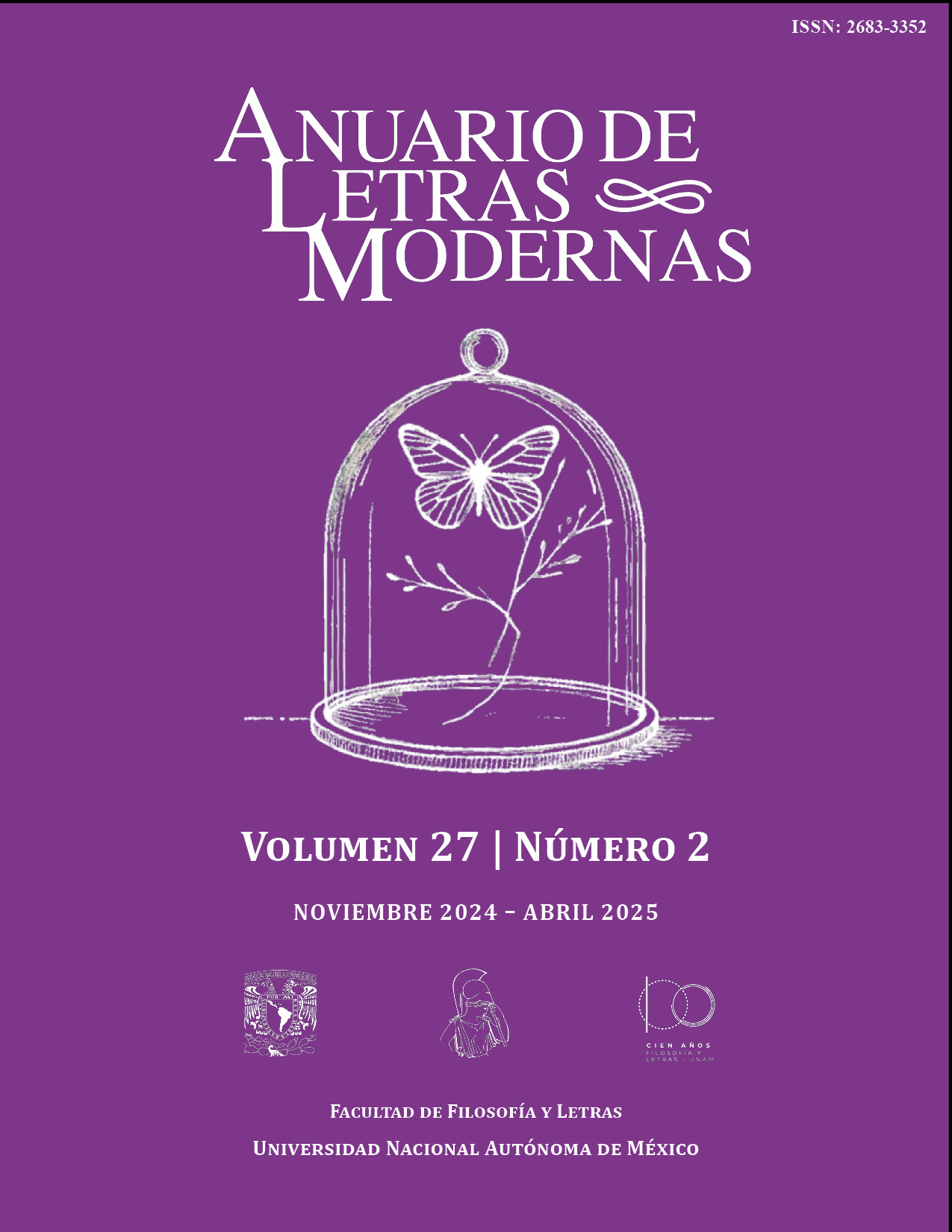“The big strip tease”: Identity and Trauma in Dismemberment as Seen in Sylvia Plath
Main Article Content
Abstract
Confessional poetry draws a thin line between the poetic voice and author. As a genre, it can be used as a medium of introspection, for self-recognition, or as a cathartic and therapeutic experience. Sylvia Plath’s seemingly intense autobiographical work functions in this liminal space where her concise verses allow a glimpse into the author’s own experience. “Lady Lazarus” and “Daddy” contain specific instances of violence where the narrative self seeks to make sense of personal trauma by means of biblical and Holocaust related metaphors. In both poems, the body appears in a state of dismemberment, cataloged into parts and painfully broken to emphasize nonconformity in the search for identity. The brutalized treatment of the body evokes processes of dissociation, according to Jacques Lacan’s theory of the “fragmented body,” resembling how Primo Levi treated the trauma of dehumanization in his narrative concerning life within concentration camps. Therefore, the use of a foreign historical tragedy in Plath’s two poems acts as a general device for intimate expression. The narrative self transforms into an object by borrowing the communal experience of the most immediate historical event, that of the Holocaust, to capture the author’s individual concerns (such as her anxiety towards nuclear war and a difficult relationship with repressive masculinity). In “Lady Lazarus” and “Daddy”, interweaving mental and physical hurt with bodily pain is a common thread providing coherence to Plath’s dislocated sensibility, both as an enhancer of trauma or as an element of contemplation and liberation. Understanding the above, this article aims to analyze the use of problematic imagery—described as impersonal historic references—for the author’s expression of the body’s experience in both poems; thus, this text puts the possible limits of the semi-autobiographical element in Sylvia Plath’s confessional work to the test.
Article Details

This work is licensed under a Creative Commons Attribution-NonCommercial-NoDerivatives 4.0 International License.
References
ASOTIĆ, Selma. (2020). “Sylvia Plath and the Dangers of Biography”. Journal of Education Culture and Society, 6(1), 55-64. https://doi.org/10.15503/jecs20151.55.64
BORGES, Rogério; Castro, Gustavo. (2019). “Memory, Catastrophe and Narratives of Pain: Primo Levi, Riobaldo and The Ghosts in the Experience of Trauma”. Bakhtiniana. Revista de estudios do discurso, 14(1), 111-131.
BUCHANAN, Ian. (2010). Corps morcelé. En A Dictionary of Critical Theory. Oxford University Press.
CHIASSON, Ian. (2018). “Sylvia Plath’s Last Letters”. The New Yorker.
https://www.newyorker.com/magazine/2018/11/05/sylvia-plaths-last-letters
COIRA, María. (2014). “Memoria y testimonio en Primo Levi: la babel de los campos de concentración”. Estudios de Teoría Literaria, 3(6), 7-16. https://fh.mdp.edu.ar/revistas/index.php/etl/article/view/954/1002
EVANS, Dylan. (1996). Fragmented body. En An Introductory Dictionary of Lacanian Psychoanalysis. Routledge.
IRIARTE, Fabián O. (2004). “Poesía y subjetividad: poetas confesionales norteamericanos” (en línea). Cuadernos del sur. Letras, (34), 187-213. http://bibliotecadigital.uns.edu.ar/scielo.php?script=sci_arttext&pid=S1668-74262004001100111
LEVI, Primo. (1958). If This is a Man (Stuart Woolf Trad.). The Orion Press, Inc. https://archive.org/stream/primo_levi_if_this_is_a_man/primo_levi_if_this_is_a_man_djvu.txt
PLATH, Sylvia. (s.f. [1962]). “A 1962 Sylvia Plath Interview with Peter Orr” (en línea). Modern American Poetry Site, Criticism. Recuperado el 26 de octubre de 2022 de https://www.modernamericanpoetry.org/1962-sylvia-plath-interview-peter-orr
PLATH, Sylvia. (2000 [1982]). The Unabridged Journals of Sylvia Plath (Karen V. Kukil Ed.). Anchor Books.
PLATH, Sylvia. (2003a [1965]). “Daddy”. En Nina Baym (Ed.), The Norton Anthology of American Literature (Vol. 2) (pp. 2778-79). Norton & Company.
PLATH, Sylvia. (2003b [1965]). “Lady Lazarus”. En Nina Baym (Ed.), The Norton Anthology of American Literature (pp. 2781-83). Norton & Company.
STRANGEWAYS, Al. (1996). “‘The Boot in the Face’: The Problem of the Holocaust in the Poetry of Sylvia Plath”. Contemporary Literature, 37(3), 370-90. https://doi.org/10.2307/1208714
WACHOWSKA, Judyta. (2001). “En torno al género literario de la confesión”. Studia Romanica Posnaniensia, 28, 177-187. https://doi.org/10.14746/strop.2001.28.014





